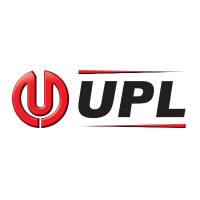
UPL Limited (formerly known as United Phosphorus Ltd.)
We at "UPL Limited" formerly known as United Phosphorus Ltd. are a global generic crop protection, chemicals and seeds company, headquartered in India (Mumbai). UPL, Advanta and UEL, the three companies in our group, are listed on the Indian stock exchange, with a combined market capitalization of approx $2.5 billion. The revenue of our Company has grown at a CAGR of 26% over the last 5 years.